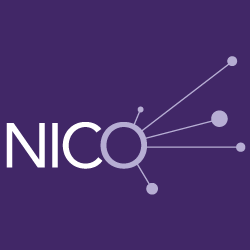Events
Past Event
Wednesdays@NICO Seminar & Live Feed: Assessing the Use of Agent-Based Models for Tobacco Regulation: An Institute of Medicine (IOM) Report
Northwestern Institute on Complex Systems (NICO)
12:00 PM
//
G40, Lower Level Donald P. Jacobs Center
Details
Live Feed on NICO YouTube Channel
David Shoham, Associate Professor, Public Health Sciences, Stritch School of Medicine, Loyola University Chicago
Assessing the Use of Agent-Based Models for Tobacco Regulation: An Institute of Medicine (IOM) Report
In 2014, the Institute of Medicine formed a Consensus Committee to examine the use of agent-based modeling for tobacco regulation, which I contributed to. In this seminar, I will discuss the results of this report. The summary of the report is as follows: "Tobacco consumption continues to be the leading cause of preventable death and disease in the United States. Since 2009, the U.S. Food and Drug Administration (FDA) has had broad regulatory authority over tobacco products and has used models as one tool to guide policy. Recently, FDA has been exploring the usefulness of a particular modeling approach—agent-based models (ABMs)—to inform its policy decisions. "ABMs are computational models used to examine how individual elements, or agents, of a system behave as a function of individual characteristics, the environment, and interactions with each other. Each agent interacts with other agents based on a set of rules and within an environment specified by the modeler, which leads to a set of specific aggregate outcomes, some of which may be unexpected. With these capabilities, ABMs have the potential to provide a deeper understanding of complex behaviors and interactions of diverse individuals and their environment, and to inform policy making. "FDA asked the IOM to convene a committee to provide guidance on using ABMs to improve the effect of tobacco control policy on public health and to review an ABM developed for use by FDA. In the resulting report, Assessing the Use of Agent-Based Models for Tobacco Regulation, the committee describes the complex tobacco environment; discusses the usefulness of ABMs to inform tobacco policy and regulation; presents an evaluation framework for policy-relevant ABMs; examines the role and type of data needed to develop ABMs; provides an assessment of the ABM developed for FDA; and offers strategies for using ABMs to inform decision making in the future. The report also includes lessons learned from public health and other disciplines to offer guidance on maximizing model credibility and building suitable models for policy making."
May 20, 2015 | 12:00 PM - 1:00 PM
Note Location: Jacobs Center G40
Kellogg School of Management, Evanston Campus
Live Feed on NICO YouTube Channel
David Shoham, Ph.D., M.S.P.H. completed his PhD in Epidemiology at the University of North Carolina at Chapel Hill in 2005, with an emphasis on life course social epidemiology and kidney disease. Following that, he stayed on at UNC to complete a 2-year postdoctoral fellowship in cardiovascular epidemiology. He also holds a Bachelor's in political science (University of Chicago, 1995) and a Master of Science in Public Health (Emory University, 2001). In 2007, he was hired as Assistant Professor of Public Health Sciences; he was promoted to Associate Professor in 2014. Dr. Shoham's current research interests focus on social network analysis as a tool for understanding diverse health phenomena including obesity and infectious diseases. He is a Principal Investigator on the Modeling Obesity through Simulation (MOTS) project, funded by NICHD (R01-HD061978). This project focuses on peer, family, neighborhood, and school influences on childhood obesity using social network analysis and agent-based modeling (ABMs). He was co-investigator on the NIDDK-funded Modeling the Epidemiologic Transition (METS) project, where he studied the relationship of occupation and wealth to energy expenditure among African-origin populations in 5 contexts (Maywood, USA; Ghana; Jamaica; the Seychelles; and South Africa). Dr. Shoham is the Graduate Program Director for the MPH program. He teaches Introduction to Epidemiologic Methods to MPH students, and offers a 1-month elective in Public Health Sciences to medical students. He also teaches an elective in social epidemiology methods.
Refreshments/lunch served
NICO coffee hour will follow for questions, networking and collaboration.
Northwestern Institute on Complex Systems
Northwestern University
Chambers Hall, 600 Foster St.
Evanston, IL 60208
nico@northwestern.edu
http://www.northwestern.edu/nico
Time
Wednesday, May 20, 2015 at 12:00 PM - 1:00 PM
Location
G40, Lower Level Donald P. Jacobs Center Map
Contact
Calendar
Northwestern Institute on Complex Systems (NICO)
WED@NICO Winter Seminar Series returns on January 28th!
Northwestern Institute on Complex Systems (NICO)
12:00 PM
//
Lower Level, Chambers Hall
Details

The Wednesdsays@NICO speaker series will return for the winter quarter on January 28th, 2026, running through March 4th. Speakers will be announced in January!
Location:
In person: Chambers Hall, 600 Foster Street, Lower Level
Remote option: Zoom links will be provided
About the Speaker Series:
Wednesdays@NICO is a vibrant weekly seminar series focusing broadly on the topics of complex systems, data science and network science. It brings together attendees ranging from graduate students to senior faculty who span all of the schools across Northwestern, from applied math to sociology to biology and every discipline in-between. Please visit: https://bit.ly/WedatNICO for information on future speakers.
Time
Wednesday, January 28, 2026 at 12:00 PM - 1:00 PM
Location
Lower Level, Chambers Hall Map
Contact
Calendar
Northwestern Institute on Complex Systems (NICO)

